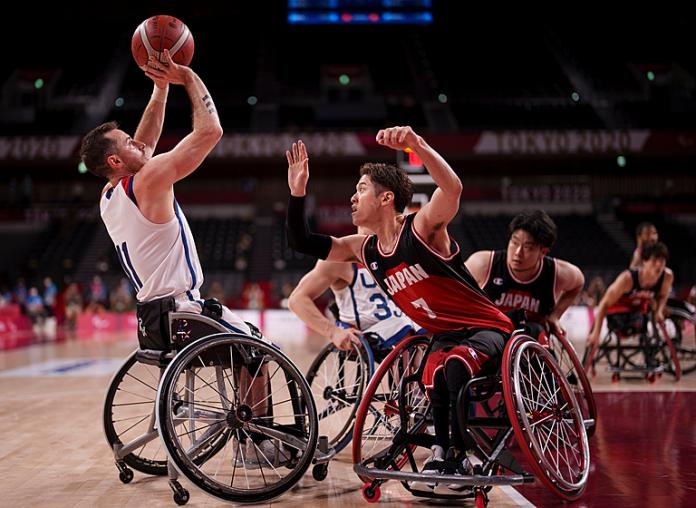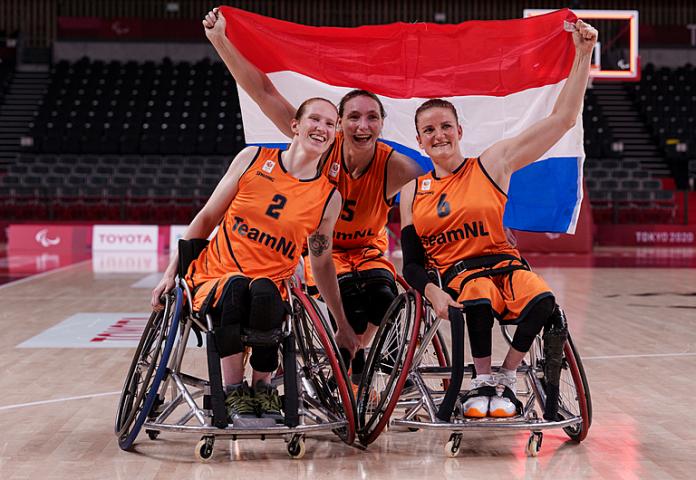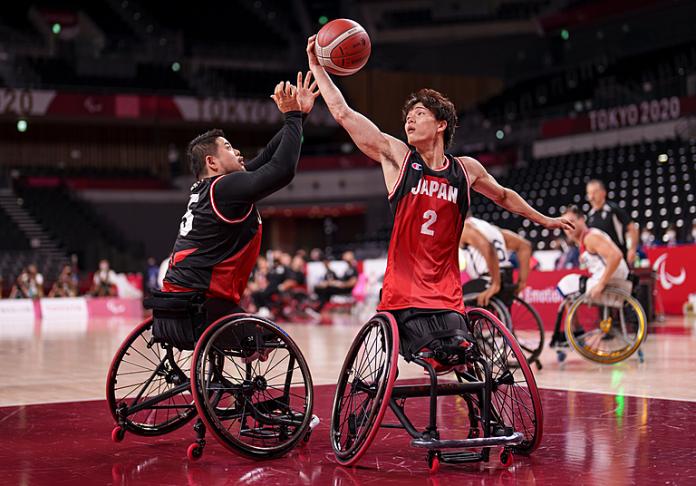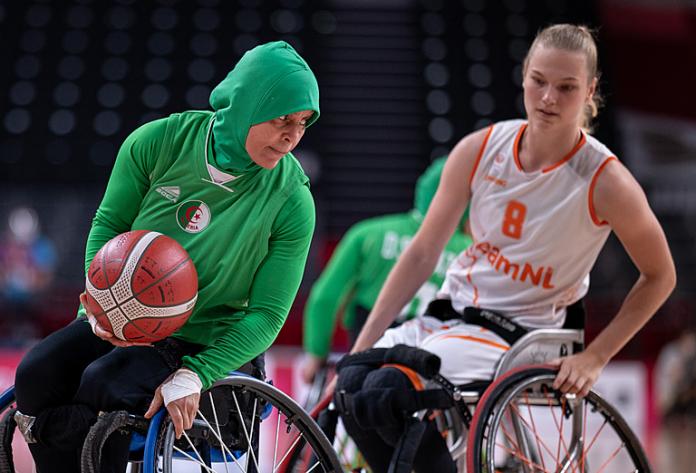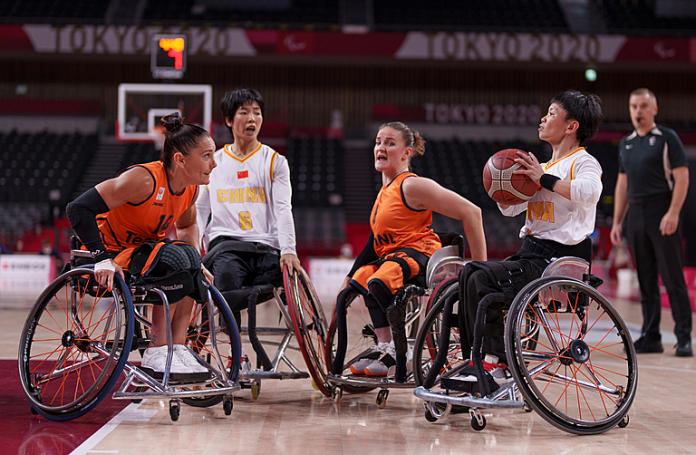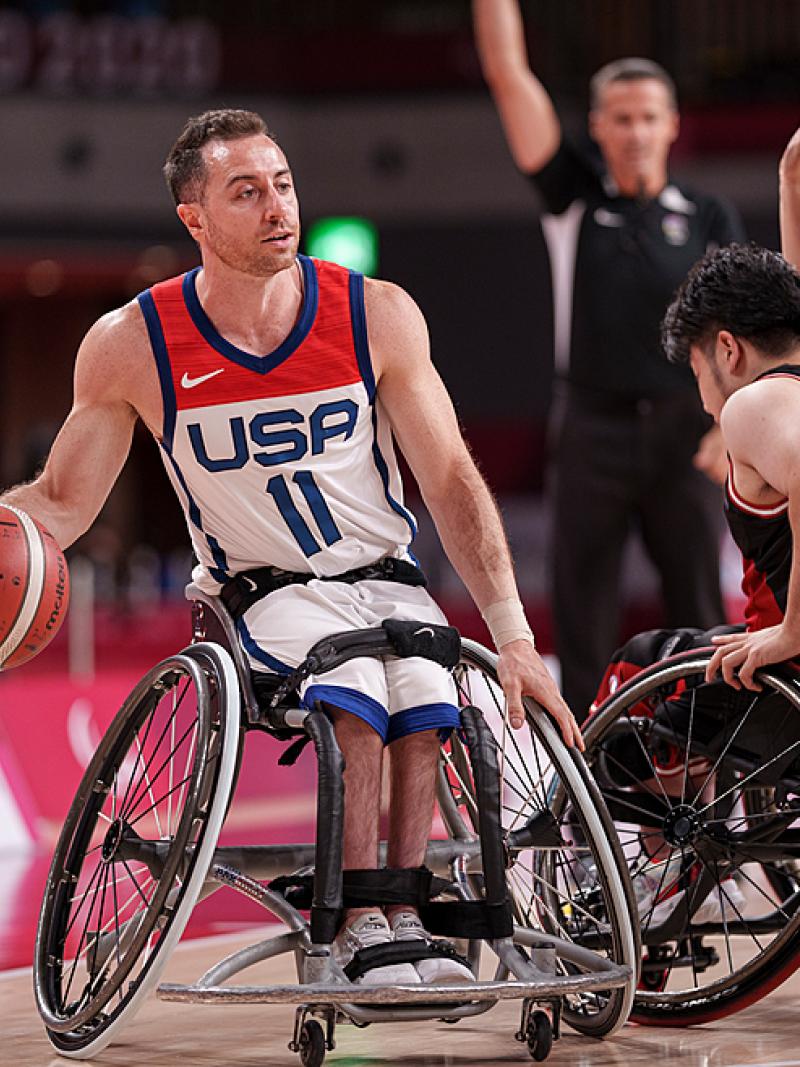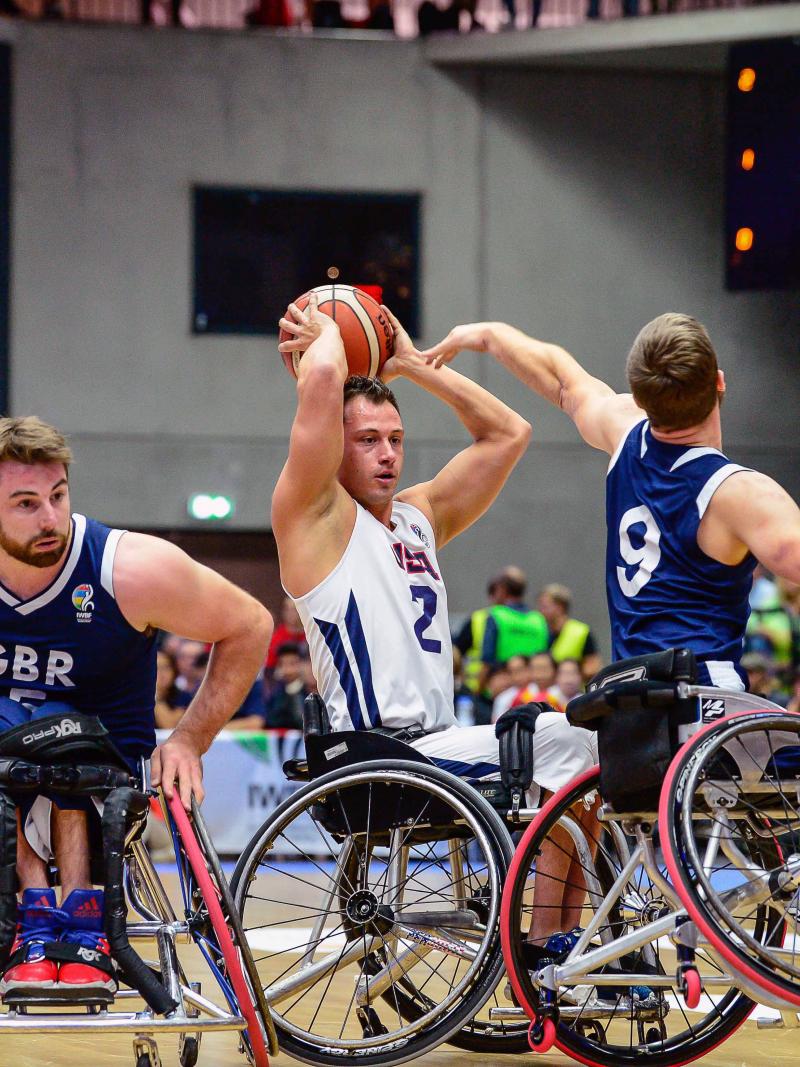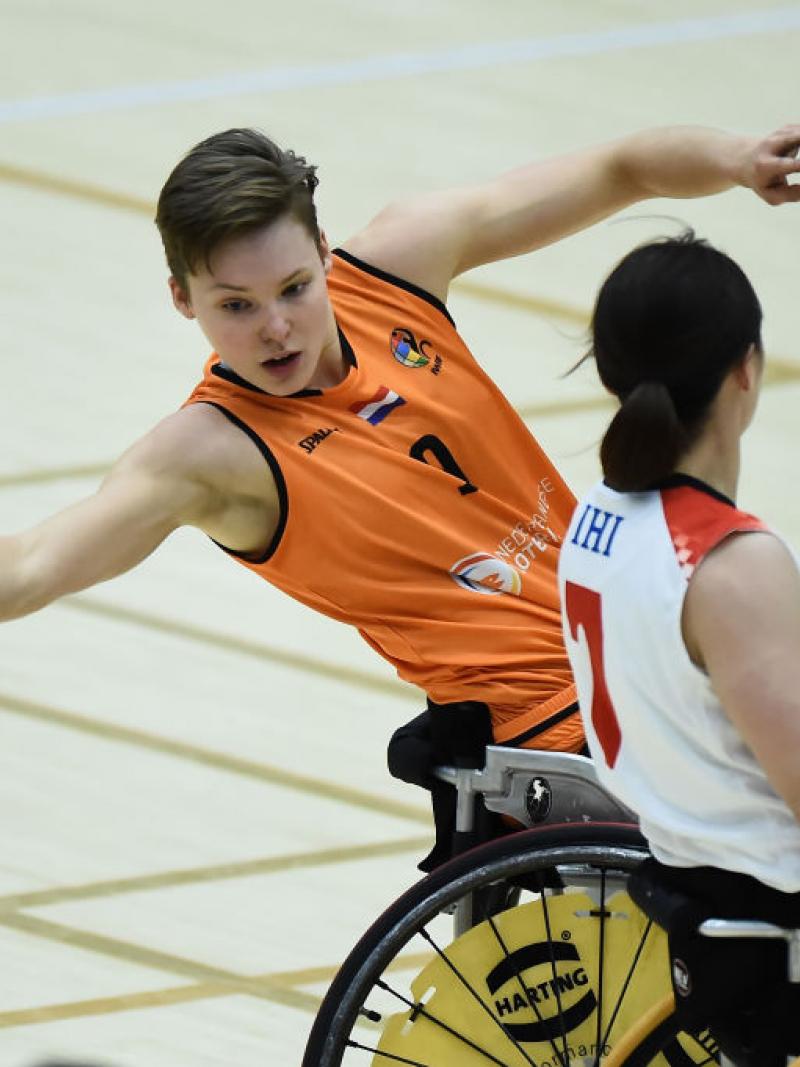Tokyo 2020: Takeaways from wheelchair basketball
A future Hall of Famer shined while Asian nations showed they should not be taken lightly 25 Sep 2021
One of the greatest sporting moments of the Tokyo 2020 Paralympics was on centre stage in wheelchair basketball. Here is what can be taken away from that game, plus much more:
1. STEVE SERIO WILL GO DOWN AS ONE OF THE GREATEST
When they needed him, Steve Serio came through. The USA’s team captain led a comeback effort in the gold medal game against host Japan to help his side secure back-to-back Paralympic titles.
It was an outstanding performance from the 33-year-old, whose mix of defensive steals and assists created opportunities for the USA to climb back from a 56-51 deficit in the last five minutes of the game to win 64-60.
It was also a reminder of why Serio will be tabbed as one of the greatest in the sport. From his Paralympic debut at Beijing 2008, where the US squad missed the podium, Serio has helped the team become a force to be reckoned with. He helped the USA secure bronze in 2012, and four years later in his prime lead the men’s national team to their first Paralympic gold medal since Seoul 1988.
When doubt streamed in after the USA’s loss to Great Britain in the finals of the 2018 World Championships, Serio and much of the returning squad members from Rio 2016 showed they can rebound. And they did at Tokyo 2020 in one of the most thrilling games throughout the tournament, and a memorable performance from the four-time Paralympian.
2. DUTCH WOMEN ARE AT ANOTHER LEVEL
The Netherlands’ finally hoisted the medal they have been longing for. It was the women’s first Paralympic gold, and one that punctuated their dominance throughout Tokyo 2020.
With a professionalised programme, the Dutch team won every game in Tokyo by double digits, apart from a loss to China in the preliminary rounds. That loss did not matter however when the Dutchwomen exacted their revenge in the gold medal game.
The Dutch felt they deserved the gold since Ro 2016 but came away with bronze. That placement only fed their hunger to prove themselves, winning their first Worlds title in 2018, then returning the core squad that included Bo Kramer, Mariska Beijer, Jitske Visser and Carina de Rooij to show they can repeat that performance on the Paralympic stage, which they did, pretty much controlling their way to the top.
3. EXPECT THE UNEXPECTED
After outstanding performances at the 2018 Worlds in Hamburg, Germany, both the men and women’s British teams were expected to be among the gold medal contenders. But not everything went their way.
After showing potential at Rio 2016, followed by silver at the 2018 Worlds, the women’s side had every reason to be confident entering Tokyo. But a 1-3 performance in the group stage forecasted that would not be the case, as the team was knocked out in the quarter finals by China — a team that turned out more impressive than expected with a historic Games.
The men’s squad finished atop their group stage, but only later to be stunned by Japan in the quarter finals. They still came away with the bronze medal, the same result from Rio 2016.
But it was the unexpected performance from the Japanese men’s team that caused shockwaves and emotional jubilation for their best ever Paralympic medal in the sport. It was a goal that Japanese head coach Shimpei Oikawa had set his sights on since 2012, as the team had finished near the bottom of the Paralympics since Beijing 2008. More players began competing in overseas leagues, and the experience showed in stars such as Hiroaki Kozai. The 33-year-old has played collegiate ball at the US and in European leagues, and after four Paralympics, helped his Japanese team fight for a historic gold medal. He finished the finals with a team-high 18 points.
4. ALGERIA'S DJAMILA KHEMGANI IS BUILDING SOMETHING SPECIAL
Djamila Khemgani helped make history for her country at Rio 2016, when Algeria became the first women’s wheelchair basketball team from Africa to compete at a Games. She has been the cornerstone for her country’s three African Championship titles and qualification to their second consecutive Paralympics in Tokyo. At 39 years old, Khemgani still displayed raw, natural talent on the court, as well as coaching wisdom that will remain valuable as the nation hopes to continue the progression and stay competitive in the international league.
5. CAN CHINA KEEP IT UP?
The Chinese women’s team made history by securing the country’s first ever Paralympic medal in the sport. From previewing their potential at the 2018 Worlds, where they lost to Germany in the bronze medal battle, it was evident that with the extra years before Tokyo 2020, China would be lethal on the Paralympic court. And they were just that, being the only team to serve powerhouse Netherlands their only loss in the tournament, and making their way to the gold medal match with outstanding shooting abilities.
Against a bigger, stronger Dutch team in the finals, China could not keep up and settled for silver. However, if talents like Zhang Tonglei and Lin Suiling can return for Paris 2024, silver will not be an option.





